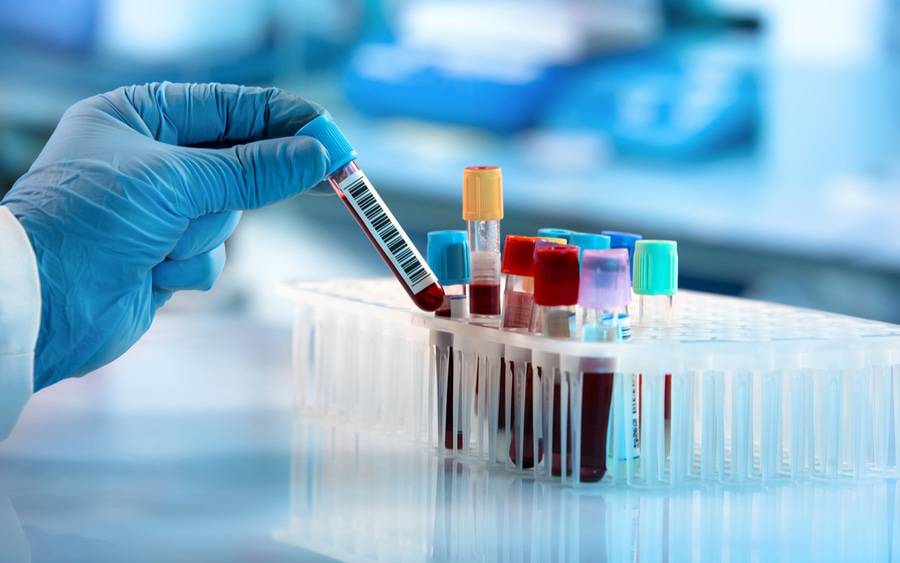What Do Common Blood Tests Check For?
Tests can indicate disorders, infection, immune system problems

Tests can indicate disorders, infection, immune system problems
Blood tests are among the most common types of diagnostic tests for good reason. The small amounts of blood drawn for the test can help your doctor check for a wide range of issues.
“From checking your cholesterol levels and thyroid function to diagnosing infections, diseases and other conditions, blood tests are often the first step in diagnosing dozens of conditions,” says Fatma Deif, MD, an internal medicine physician at Scripps Clinic Rancho San Diego.
Your doctor typically orders blood tests for you during a physical exam or to screen for specific conditions like heart disease, thyroid disease, cancer, diabetes and sexually transmitted infections. They can also monitor the effectiveness of treatments.
Blood tests are very safe. A phlebotomist uses a needle to takes a sample of your blood, usually from a vein in your arm. You may feel a slight prick when the needle is inserted into the vein. But the test is typically not painful, and the process takes just a few minutes.
Most blood tests require no special preparation, but some require fasting for a specific period before the test.
What are different types of blood tests?
Complete blood count
A routine complete blood count (CBC) is a lab test that can provide an overview of your health. It can help your doctor look for a specific condition. This test measures several parts of your blood, including:
Red blood cell count
This test measures the number of red blood cells in your blood. A low count may indicate disorders, such as anemia or blood loss. Red blood cells carry oxygen from your lungs to your entire body.
White blood cell count
This test measures the number of white cells in your blood. White blood cells help with immunity, low counts may be a sign of infection or immune system problems. There are different types of white blood cells: a blood differential test measures each type.
Platelet count
This test measures the number of platelets in your blood. Platelets help your blood clot. Low platelet levels may lead to too much bleeding; high levels may raise your risk of blood clots.
Hemoglobin test
Measures the amount of hemoglobin in your blood. Hemoglobin is a protein that carries oxygen. Low levels can indicate anemia and other disorders.
Hematocrit test
Measures the proportion of red blood cells in your blood. If you have anemia, your hematocrit may be low, while dehydration may cause it to be high. Hematocrit levels also may signal a blood or bone marrow disorder.
Mean corpuscular volume
The MCV test measures the average size of your red blood cells. Abnormal levels may indicate a disorder.
Basic metabolic panel
A basic metabolic panel (BMP) is a group of tests that measures the various chemicals in your blood. It includes tests for blood glucose, calcium and electrolytes, which are minerals in your blood.
“The BMP gives us a wealth of information about your heart, muscles, bones and organs, such as your liver and kidneys,” says Dr. Deif. “Your doctor may instruct you to fast for several hours or overnight before having some of these tests.”
Enzyme marker
This test measures the amounts of enzymes, which are proteins in your blood that can indicate tissue damage or disease. There are many blood enzyme tests. One of the most common is used to detect a heart attack and heart muscle damage.
Lipoprotein panel
Also called a lipid panel, this test measures your HDL (“good”) and LDL (“bad”) cholesterol levels, as well as your triglycerides, a type of fat. It can provide information about your risk of coronary heart disease or stroke. You may need to fast for up to 12 hours before taking this test.
Pregnancy test
The human chorionic gonadotropin (hCG) test measures the level of hCG hormone in your blood and is used to see if a woman is pregnant. It also may be done to test for breast, lung, uterine or ovarian cancer.
Ammonia test
Measures level of ammonia, which is a waste product created when your body breaks down protein. If too much ammonia builds up in your blood, it can result in extreme fatigue, neurological problems, coma or death.
CO2 test
Measures the amount of carbon dioxide in your blood. Abnormal levels may indicate kidney, respiratory or metabolic issues.
Coagulation tests
Measure your blood’s ability to clot and how long it takes to clot. People who take blood-thinning medication, such as Coumadin, are given this test to make sure they are taking the correct dosage.
Educate yourself about blood tests
If your doctor recommends a blood test, be sure you understand what the test measures. Check if you need to do anything to prepare for it. Many patients, including at Scripps, can check their blood test results in secure online patient portals.